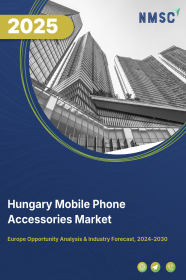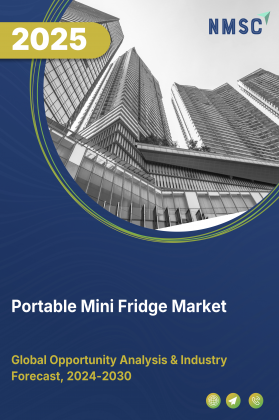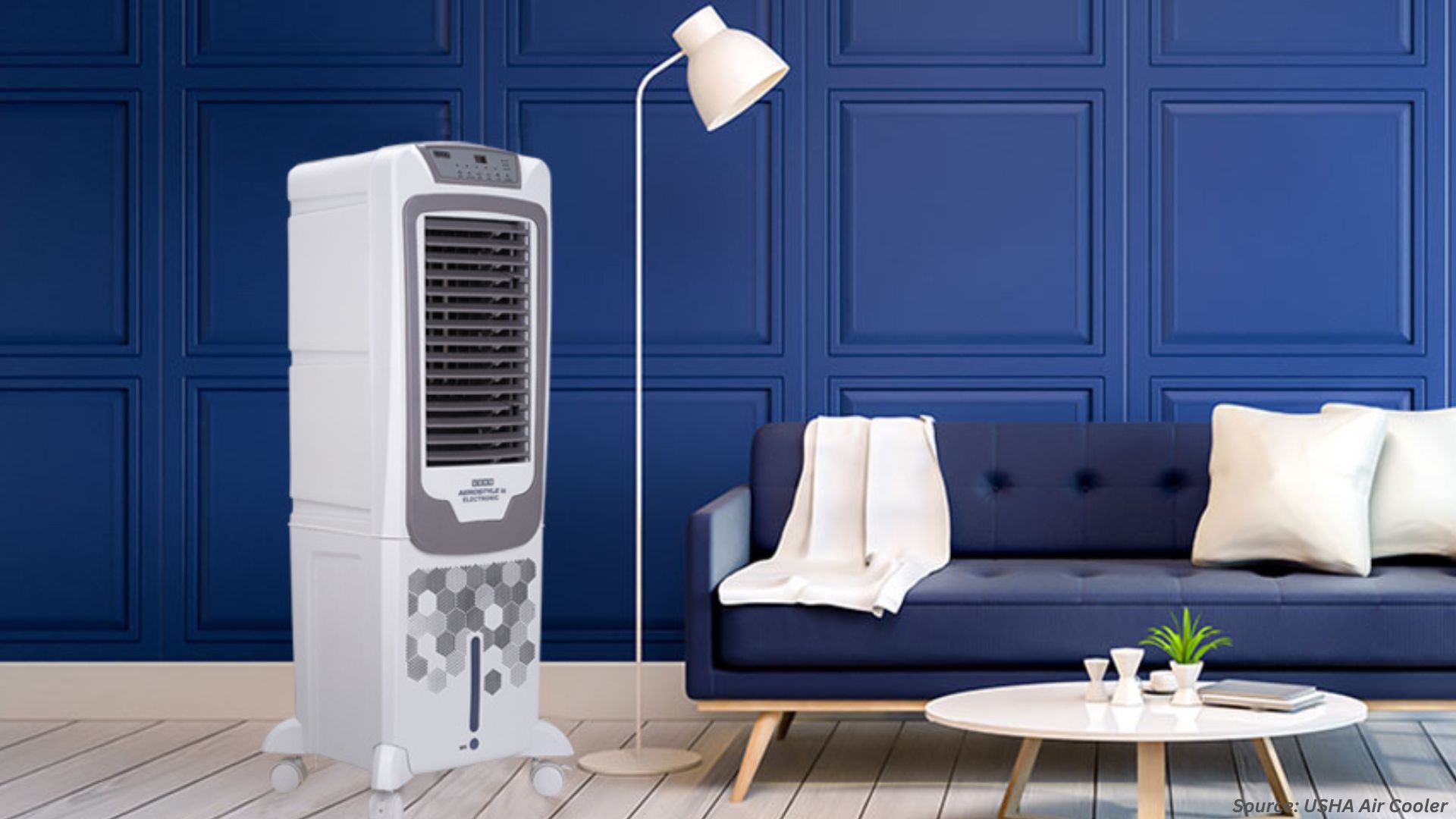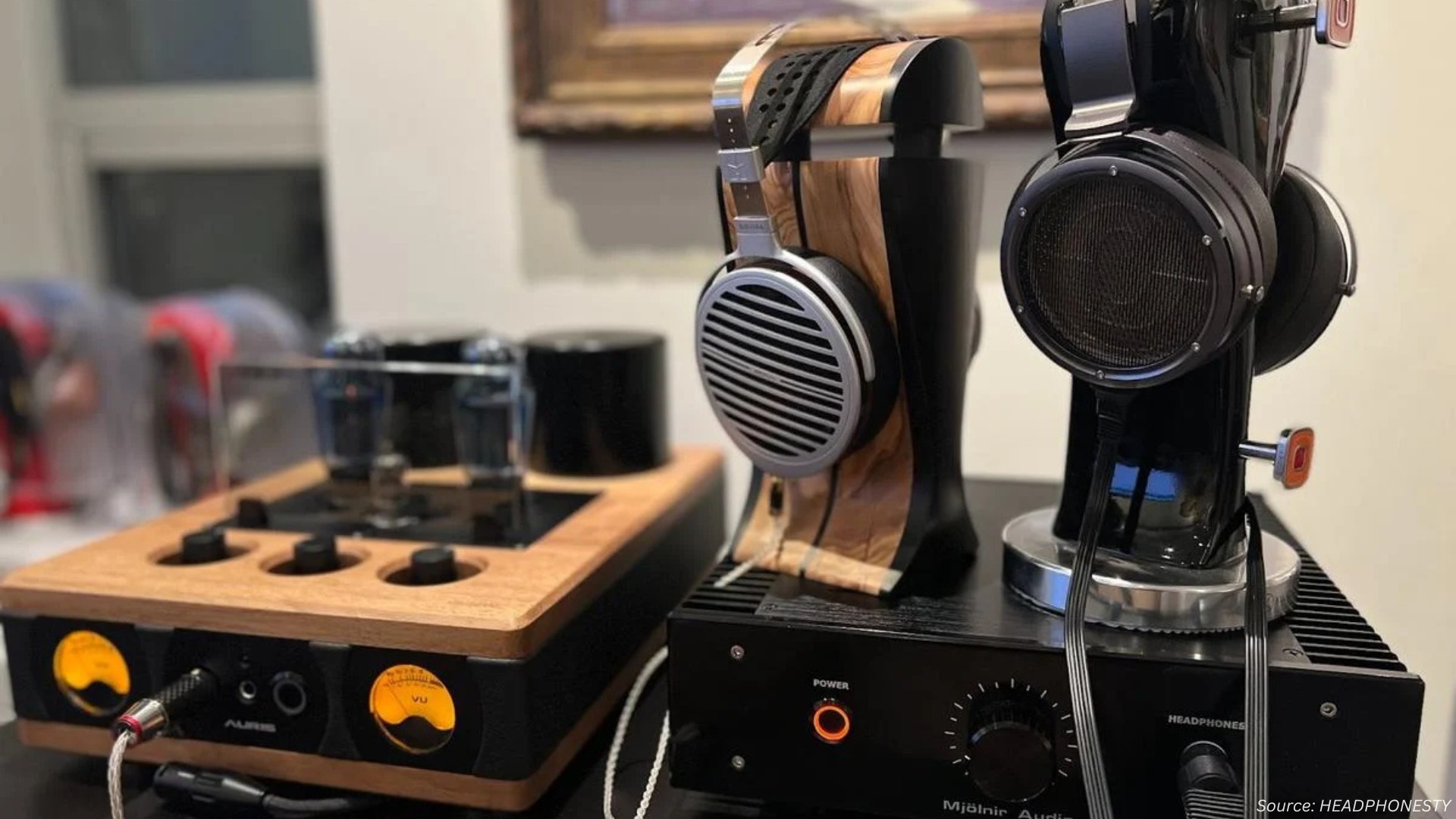
Hungary Mobile Phone Accessories Market by Product, (Battery, Headphone/earphone, Portable Speaker, Charger, Memory Card, Power Bank, Battery Case, Protective Case, Screen Protector, Mount & Stand, Cables, Selfie Stick, Pop-socket, Car/bike Holder, Styluses), by Usage, (Android, Iphone), by Price, (Low, Medium, High), by Distribution Channel, (Offline, Online), by Sales Category, (Branded, Third Parties, White Labels/no Same Brands)- Opportunity Analysis and Industry Forecast, 2024–2030
Industry: Retail and Consumer | Publish Date: 01-Sep-2025 | No of Pages: 124 | No. of Tables: 158 | No. of Figures: 103 | Format: PDF | Report Code : RC1853
Market Definition
Hungary Mobile Phone Accessories Market size was valued at USD 628.9 million in 2023, and is predicted to reach USD 874.3 million by 2030, at a CAGR of 4.2 % from 2024 to 2030. Also, the Hungary mobile phone accessories market size was 16.0million units in 2023, and is predicted to reach 26.3million units by 2030, with a CAGR of 6.7% from 2024 to 2030. Mobile phone accessories encompass additional items or devices crafted to elevate the functionality, safeguarding, or aesthetic appeal of mobile devices. These accessories serve as optional enhancements that users can procure to customize, safeguard, or amplify the capabilities of their mobile gadgets. They encompass a wide array of products such as cases, screen protectors, chargers, power banks, headphones, earphones, Bluetooth speakers, stylus pens, car mounts, selfie sticks, and various adapters and cables. Addressing a myriad of needs and preferences, mobile phone accessories range from practical utility to fashion and personalization, offering users the freedom to customize their mobile experience in alignment with their lifestyle and specific requirements.
Rapid 5g Adoption and Enhanced Device Capabilities Spark Accessory Innovation
With Hungary’s mobile networks moving aggressively to 5G across all major cities, new handsets boast more powerful antennas, increased thermal output and advanced sensor arrays. Accessory makers have responded by introducing high-efficiency fast chargers, slim thermal-dissipation cases and precision-fit antenna-friendly designs. Wireless audio brands are likewise rolling out low-latency earbuds and neckbands optimized for HD voice and gaming. This continuous cycle of device upgrades and accessory reinvention keeps product pipelines fresh and consumer interest high.
Sustainability and Eco-conscious Consumer Preferences Drive Demand for Green Accessories
Hungarian buyers are increasingly prioritizing carbon-footprint and lifecycle impact when choosing phone add-ons. Brands are launching biodegradable, recycled-plastic and responsibly sourced leather cases, alongside modular power banks designed for easy battery replacement. Retailers highlight “cradle-to-cradle” certifications and transparent supply-chain credentials in online listings and in-store displays. This shift toward eco-friendly packaging and materials not only meets regulatory pressures on e-waste but also commands a premium among younger, sustainability-minded cohorts.
Ecosystem Lock-in and Wearable Integration Strengthen Accessory Sales
As Apple, Samsung and Huawei build seamless cross-device ecosystems, consumers invest in complementary wearables and smart accessories that tie into their phone’s native software. Smartwatches, health-monitoring bands and wireless earbuds that auto-switch between phone, tablet and PC foster brand loyalty—and encourage multi-unit purchases. Hungary’s leading carriers now bundle exclusive wearable offers with handset contracts, while certified third-party accessory makers leverage official SDKs and firmware compatibility to tap into these ecosystem-driven spend patterns.
Regulatory Compliance Burden from Eu’s Universal Charger Mandate
Hungarian accessory producers and importers must absorb significant redesign and certification costs to meet the EU’s USB-C common charger requirement, effective December 2024. This involves retooling production lines, sourcing compliant connectors, and securing updated safety and electromagnetic compatibility approvals—expenses that disproportionately impact small and niche manufacturers. At the same time, residual compatibility issues with uncertified third-party cables have driven up return rates and warranty claims, further extending go-to-market timelines and compressing margins for local players lacking the scale to spread compliance investments.
Growth in Smart Health Integration Opens New Avenues for Wearable Accessories
Hungary’s increasing focus on digital health and personal wellness presents a strong opportunity for mobile accessory makers, particularly in the wearable segment. With rising adoption of health-focused apps and national emphasis on preventive healthcare, consumers are turning to smartwatches, fitness trackers, and wearable health monitors that sync with smartphones. Accessory brands can tap into this trend by offering modular bands, swappable sensor sleeves, sweat-resistant charging docks, and sleep-optimized wearable cases. As healthcare providers and insurers begin exploring partnerships with tech platforms for remote monitoring solutions, smart accessories that support heart rate tracking, sleep quality analysis, or fall detection are poised to become mainstream, opening new revenue streams for brands positioned at the intersection of tech and wellness.
Competitive Landscape
The Hungary mobile phone accessories market comprises various market players, such as Samsung Electronics, Apple Inc, Xiaomi Corporation, Bose Corporation, Sony Corporation, Spigen Inc, Huawei Technologies Co., Ltd, Anker Innovations, Belkin International, Inc, Skullcandy, UGREEN Group, Logitech International S.A, Cellularline SpA, Baseus Ltd, JABRA (GN AUDIO) and others.
Hungary Mobile Phone Accessories Market Key Segments
By Product
-
Battery
-
Headphone/Earphone
-
Portable Speaker
-
Charger
-
Memory Card
-
Power Bank
-
Battery Case
-
Protective Case
-
Screen Protector
-
Mount & Stand
-
Cables
-
Selfie Stick
-
Pop-Socket
-
Car/Bike Holder
-
Styluses
By Usage
-
Android
-
iPhone
By Price
-
Low
-
Medium
-
High
By Distribution Channel
-
Offline
-
Specialty Mobile Stores
-
General Retail / Hypermarkets
-
-
Online
-
E-commerce Marketplaces
-
Brand-owned Online Stores
-
By Sales Category
-
Branded
-
Third Parties
-
White Labels/No Same Brands
Key Players
-
Samsung Electronics
-
Apple Inc.
-
Xiaomi Corporation
-
Bose Corporation
-
Sony Corporation
-
Spigen Inc.
-
Huawei Technologies Co., Ltd.
-
Anker Innovations
-
Belkin International, Inc.
-
Skullcandy
-
UGREEN Group
-
Logitech International S.A.
-
Cellularline SpA
-
Baseus Ltd.
-
JABRA (GN AUDIO)
REPORT SCOPE AND SEGMENTATION:
|
Parameters |
Details |
|
Market Size in 2023 |
USD 628.9Million |
|
Revenue Forecast in 2030 |
USD 874.3Million |
|
Growth Rate |
CAGR of 4.2 % from 2024 to 2030 |
|
Market Volumes in 2023 (Million units) |
16.0 |
|
Volumes Forecast in 2030 (Million units) |
26.3 |
|
Growth Rate |
6.7% |
|
Analysis Period |
2023–2030 |
|
Base Year Considered |
2023 |
|
Forecast Period |
2024–2030 |
|
Market Size Estimation |
Billion (USD) |
|
Growth Factors |
|
|
Companies Profiled |
15 |
|
Market Share |
Available for 10 companies |
|
Customization Scope |
Free customization (equivalent up to 80 working hours of analysts) after purchase. Addition or alteration to country, regional, and segment scope. |
|
Pricing and Purchase Options |
Avail customized purchase options to meet your exact research needs. |

















 Speak to Our Analyst
Speak to Our Analyst

























